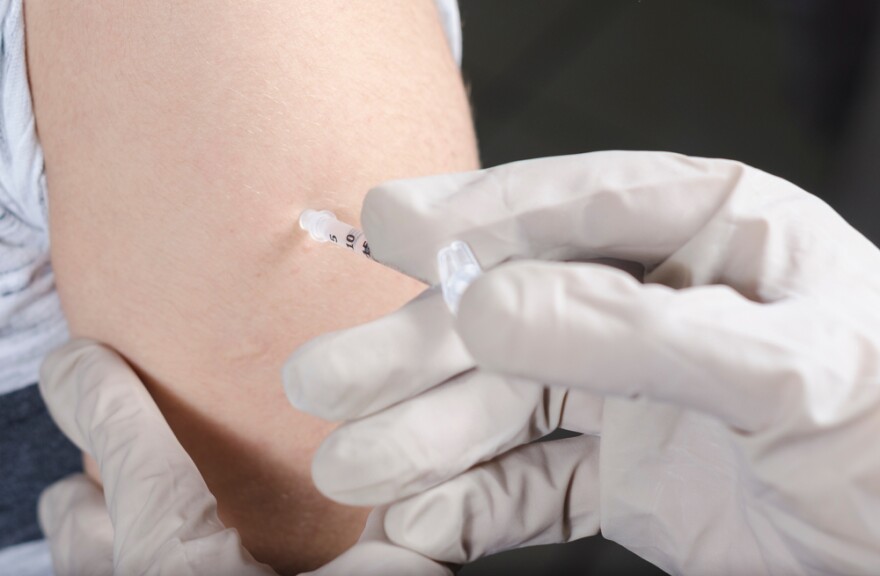KERA's Sam Baker talked about this with Dr. John Carlo, the CEO of Prism Health North Texas, a local nonprofit HIV/AIDS service organization.
INTERVIEW HIGHLIGHTS:
This interview was lightly edited for clarity.
About The Difference In Study Results:
There is certainly a reason why we would suspect somebody living with HIV would have a more severe coronavirus infection.
The HIV virus attacks our immune cells that would be used to fight off any type of infection, including a coronavirus infection. So it's certainly possible that we would see this as a risk factor.
However, some medications we use to treat HIV may actually have antiviral properties that actually could protect somebody, against a more severe coronavirus infection. In fact, very early on we were studying some anti-HIV medications that may have had some potential ability to also treat coronavirus infections.
So there's a lot of potential reasons why, in both directions, there certainly could be either an increased risk or no increased rate.
Higher Vaccine Priority For People With HIV
If you look at HIV as an immune-compromising condition, then somebody that has not fully treated HIV is susceptible to secondary infections. So I think it's entirely plausible to put somebody living with HIV in the same category of other high-risk medical conditions that could receive a stronger benefit from that coronavirus vaccine. So we think that makes sense.
The other good news we've seen so far is the vaccine does work in people living with HIV. However, we do believe if you are untreated for HIV, you may have less of an immune system to ramp up with the vaccine. So again, we go back to making sure the HIV is completely treated as best it can be. And we add that vaccine as well.
COVID Vaccine Vs. HIV Medication:
We have not seen any effect of a coronavirus vaccine limiting the HIV treatment capabilities. Really for all the vaccines that we provide for our patients living with HIV, none have affected the ability of the medications to work.
How People With HIV Should Move Forward After The Studies
When we talk about health for our patients, it's more than just taking the medications and saying that's all you need to do.
We want to keep the HIV virus completely suppressed, which we can do with the great medications we have. We also need to treat all of the other medical conditions that would put a patient at higher risk for coronavirus infection:
- High blood pressure
- Diabetes
- Kidney disease
- Lung disease
If we can do all of those things, I think we are really setting up our patients to have great protection against coronavirus with the last caveat, of course, getting the vaccine.
Even With The Delta Variant?
It will make matters worse, unfortunately, given how infectious the Delta variant is. The vaccine is still protective, still the right thing to do today.
One thing we will have to look at going forward is people living with HIV have immunocompromised conditions. So, the vaccine may not last as long as other people. So, we'll need to look at that carefully, but right now the best advice is to continue to get that vaccine as soon as possible.
RESOURCES:
COVID-19 Is Especially Risky for People With H.I.V., Large Study Finds
COVID-19 Severe Risks Not Significant in People with HIV
Got a tip? Email Sam Baker at sbaker@kera.org. You can follow Sam on Twitter @srbkera.
KERA News is made possible through the generosity of our members. If you find this reporting valuable, consider making a tax-deductible gift today. Thank you.





